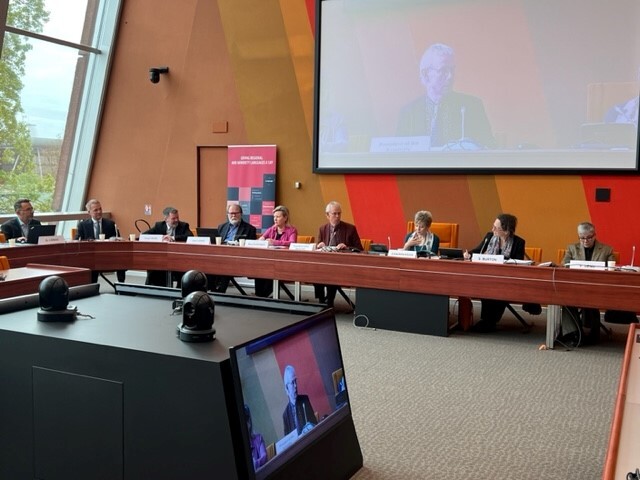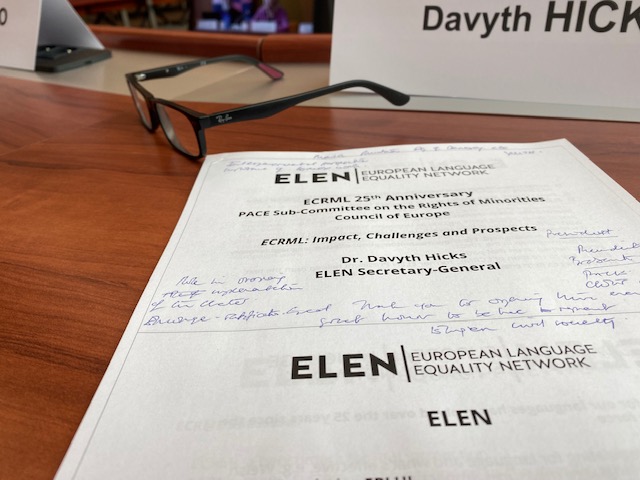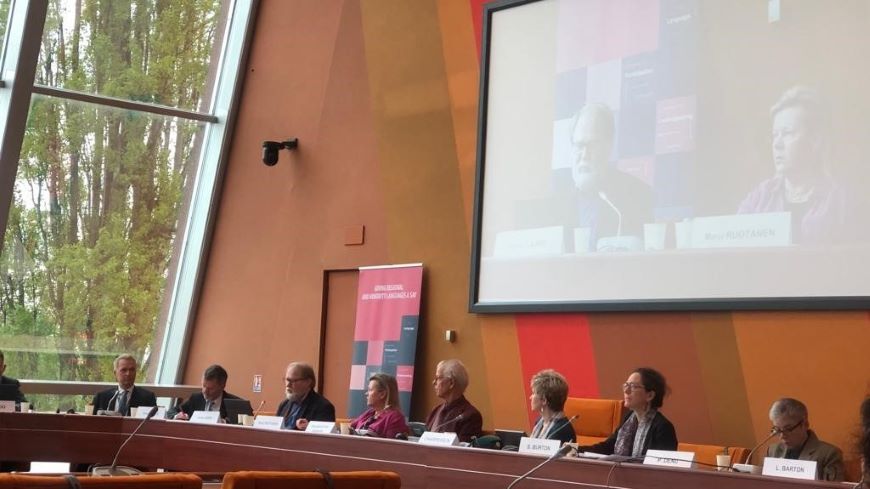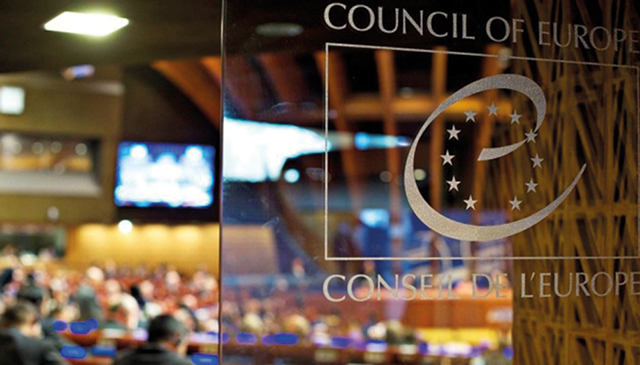The Parliamentary Assembly of the Council of Europe (PACE) celebrated the 25th anniversary of the Charter for Regional or Minority Languages (ECRML) on Thursday (27th April) with a hearing featuring the PACE President, Council of Europe DG Democracy and Human Rights, the ECRML Committee of Experts (COMEX), and the European Language Equality Network.
PACE President Kox opened the event underlining his strong support for the Charter and spoke about his own childhood speaking the Brabants dialect of Dutch. He called for more States to ratify the Treaty and underlined the special role that PACE should play to enhance its visibility.

ELEN Secretary-General, Davyth Hicks, discussed the Charter’s impacts, its successes, as well as current challenges and ELEN Recommendations. Among various successes he noted how the Charter has been crucial for many languages as it gave them some measure of official recognition, a vital step in the process of language recovery. Furthermore, 25 years of COMEX Reports provide a huge sociolinguistic database on the situation of over 80 lesser-used European languages, which is vital considering the lack of official data on these languages.
While there has been progress for territorial languages because of the Charter, there’s still the need for clear, unambiguous language rights and ring-fenced funding for these languages, and the need for France, Italy and Greece to ratify the Treaty.
Ongoing problems include the rise of hate speech; state impunity when violating the Charter; lack of, or poor, implementation in some States; that the Charter itself does not provide any language rights; as well as an EU which has seen no progress in minoritized language protection for 20 years.

Dr. Hicks referred to recent developments in France, which has signed but not ratified the Charter, where discrimination against territorial languages is systemic. The Corsican Assembly has been banned from using Corsican, Catalan-speaking councils have been banned from using Catalan, despite both offering simultaneous translation to French, Occitan parents have been blocked from spelling their son’s name in Occitan, Basque children blocked from taking their exams in Basque. The Constitutional Court censure of the Molac Law (although now revised) deemed territorial language immersion education unconstitutional. “Its frustrating,” he said, “as it would be very easy for France to ratify the ECRML given the efforts it is making in some areas with languages.”
Furthermore, ratification does not necessarily ensure protection. In Spain, the successful and strongly supported Catalan immersion model has come under judicial attack. In Galicia, only 4% of children’s TV programming is in Galego, and Basque language rights are being undermined in many areas.
ELEN Recommendations included updating the Charter with additional protocols that would better ensure language rights and address the increasing digital divide between European languages, as illustrated by the ELE Project. In addition, that PACE call on the Venice Commission to issue an Opinion on France and ratifying the Charter, as well as on Italy and Greece.
Marja Ruotanen, Director-General of the Council of Europe Directorate General of Democracy and Human Dignity, presented the latest report of the Secretary General on the application of the language Charter and reminded that this treaty is used today as a benchmark to assess the level of minority language protection in the European states.

Jarmo Lainio, 1st Vice-Chair of the Committee of Experts (COMEX), pointed out the systemic and structural issues for territorial languages, particularly in the field of education, and also discussed some new challenges, such as the increasing digital divide among European languages.
The presentations were followed by an exchange of views with PACE Members where Catalan MP Laura Castel i Fort proposed that more ECRML information sessions, such as that held by ELEN in the French Senate in 2019, could be held in national parliaments.
The evening before the hearing the Permanent Representation of the United Kingdom organised a reception to celebrate the ECRML. UK Ambassador to the Council of Europe, Sandy Moss, reaffirmed the attachment and strong support of the United Kingdom to the Charter. (Eurolang 2023)

